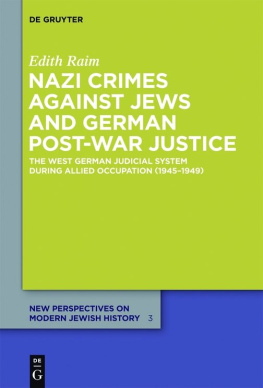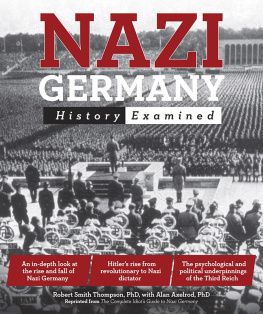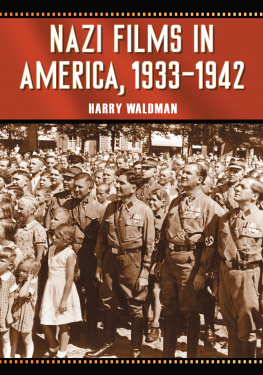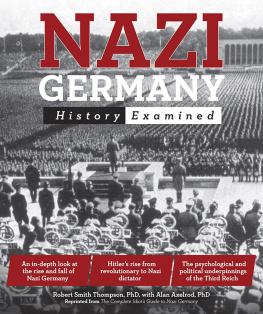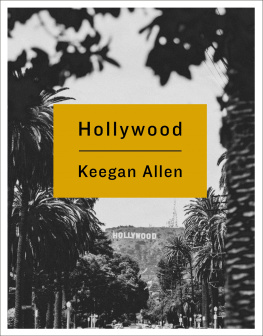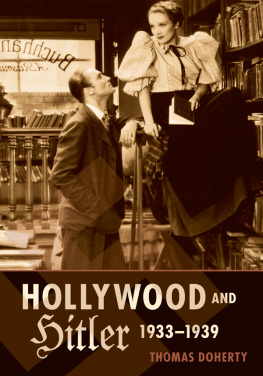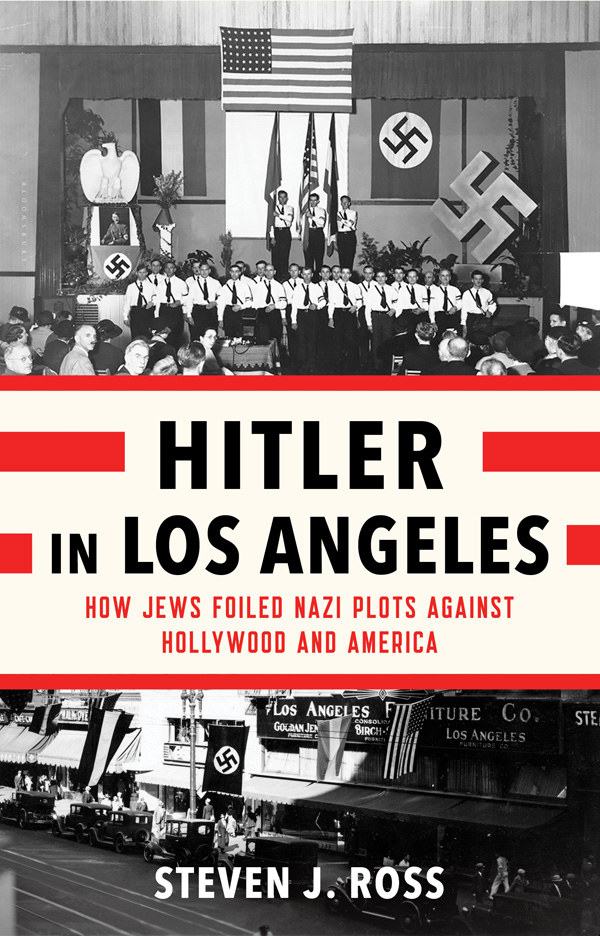Contents
Guide
Pagebreaks of the print version


To my mother, Esther Ross, and the memory of my father, Benjamin Ross
And to the memory of my in-laws, Kurt and Olga Kent
BY THE SAME AUTHOR
Hollywood Left and Right: How Movie Stars Shaped American Politics
Movies and American Society
Working-Class Hollywood: Silent Film and the Shaping of Class in America
Workers on the Edge: Work, Leisure, and Politics in Industrializing Cincinnati, 17881890


CONTENTS
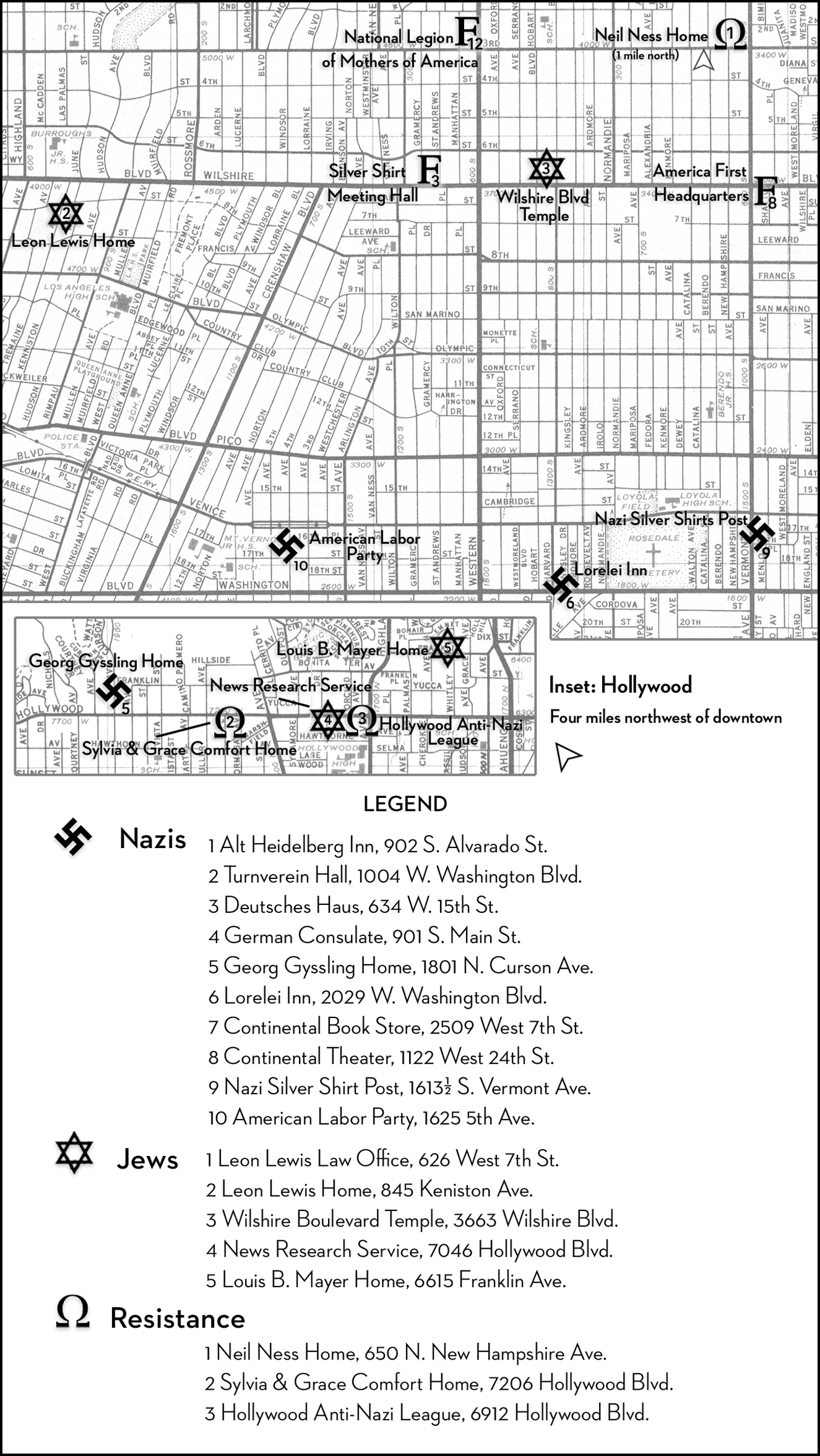

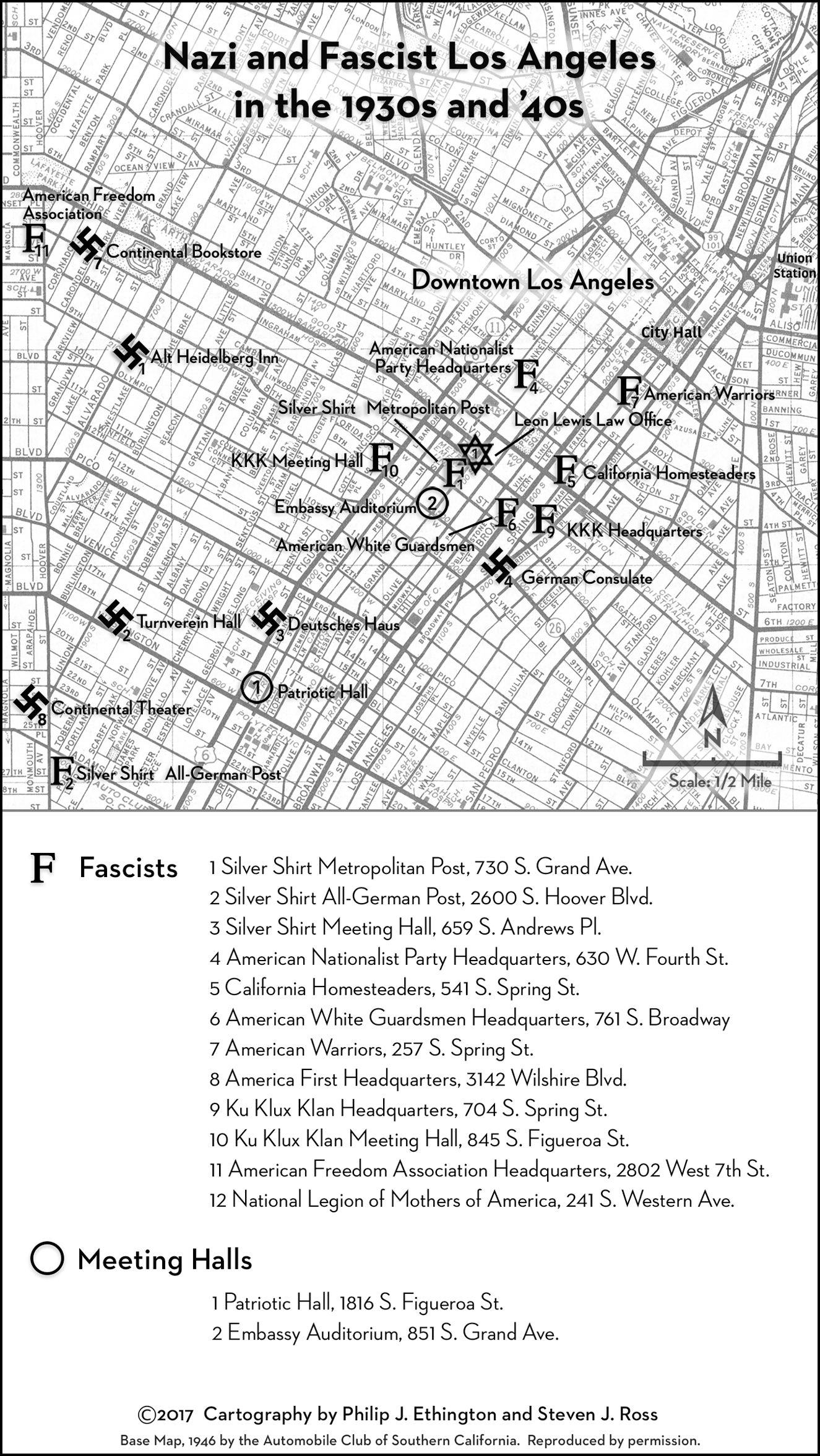

We will undermine the morale of the people of America Once there is confusion and after we have succeeded in undermining the faith of the American people in their own government, a new group will take over; this will be the German-American group, and we will help them assume power.
ADOLF HITLER, 1933
Every evening throughout my childhood, the Gestapo broke into our home and terrorized my mother. Some nights they would only drag her away; other nights they took her, my sister, and me to Gestapo headquarters. Each morning my mother, who had survived the Auschwitz, Bergen-Belsen, and Salzwedel concentration camps, woke up exhausted and drenched in sweat. And every morning she told me about her nightmares.
My father had no nightmaresat least, not ones he shared with his family. He simply never talked about his years in the Warsaw Ghetto or his time in Dachau. Ironically, Dachau is where he learned how to be a bakera skill he used when he came to the United States. Although he was not well-known beyond his circle of friends, for over three decades New Yorkers who patronized Zabars or Balduccis enjoyed his Russian coffee cake and strudels.
As a teenager, I wanted to know how these horrors could have happened to my parents and to millions of Jews. I swore that I would have fought to save them, and I did not understand how Jews could have been so passive in the face of such evil. Why was there not more resistance at home and abroad? I promised myself that one day I would try to answer these disturbing questions.
Yet for forty years I have been an American historian who ignored his own past. I have written about poverty in eighteenth-century New York City; experiments in free black labor conducted during the Civil War; nineteenth-century working-class history; and twentieth- and twenty-first-century Hollywood politics. It is now time to honor my youthful promise and write about the world of my parents and the millions of Jews who found themselves terrorized by Nazis and fascists, not just in Europe but also in the United States.
In the course of my research, I discovered that my youthful selfalong with many historianshad been asking the wrong question. Many American Jews did rise to oppose Hitler, but they could not agree on the best path of resistance. A divided strategy and inability to implement a single vision is not the same as passivity or a failure of will. Indeed, one might rightly ask why the U.S. government did not do more to stop the spread of Nazism and fascism at home. Why did local authorities in so many cities turn a blind eye to Nazi activities in their own backyards?
My earlier assumptions about American Jewish resistance changed after I came across a special exhibition at Lewis and the courageous group of men and womenChristians and Jewswho risked their lives to undermine Nazi and fascist activity in Los Angeles.
Drawing extensively on the spy reports sent to Lewis on a near-daily basis, Hitler in Los Angeles tells the story of thirteen years of Jewish resistance to American Nazis and fascists. It is a story almost too amazing to be true. But it is. As I soon discovered, American Jews were far more active in fighting Hitler and fascism in the United States during the 1930s and early 1940s than were our Communist-obsessed government authorities.
Hitler in Los Angeles is a history written from the point of view of Leon Lewis and his spies as they saw events evolving in real time. Many of their reports contain dialogue of actual conversations between the spies and those upon whom they were spying. I use their own wordsspies, Nazis, fascists, and government authoritiesas much as possible to describe the unpredictable world they encountered. The men and women Lewis and his able assistant Joseph
For Nazi propaganda minister Joseph Goebbels, no American city was more important to the cause than Germanys quest for world domination. While Reds tried to control Hollywood through infiltration, Nazis planned to do it through intimidation and murder.
Los Angeles seemed the perfect place to establish a beachhead for the Nazi assault on the United States. Not only did Southern California have a long history of anti-Semitism and right-wing extremism, but the Los Angeles port was less closely monitored than New York (or Jew York, as Nazis often referred to it), which made it easier to use as the central depot for sending spies, propaganda, money, and secret orders from Germanyall of which were then distributed throughout the United States.
Nazi plans to conquer an industry, a city, and a nation were not idle fantasies. But what Hitler, Goebbels, and their American disciples did not know was that Los Angeles also served as the epicenter of Jewish efforts to spy on Nazis and thwart their plans. Smug in their sense of racial superiority, Nazis believed they had little to fear from these cowardly less-than-human people.
Beginning in August 1933 and lasting until the end of World War II, Jewish attorney Leon L. Lewis used his connections with the American Legion and Disabled American Veterans of World War I (DAV) to recruit military veteransand their wives and daughtersto go undercover and join every Nazi and fascist group in Los Angeles. Often rising to leadership positions, this daring group of men and women uncovered a series of Nazi plots to kill the citys Jews and to sabotage the nations military installations. Plans existed for hanging twenty Hollywood actors and power figures, including Al Jolson, Eddie Cantor, Charlie Chaplin, Louis B. Mayer, and Samuel Goldwyn; for driving through Boyle Heights and machine-gunning as many Jewish residents as possible; for fumigating Jewish homes with cyanide; and for blowing up defense installations and seizing munitions from National Guard armories on the day Nazis planned to launch their American putsch.
From 1933 until 1945, while many Americans closed their eyes, Lewiss operatives risked their lives to stop Hitlers minions and alert citizens to the dangers they posed to American democracy.


